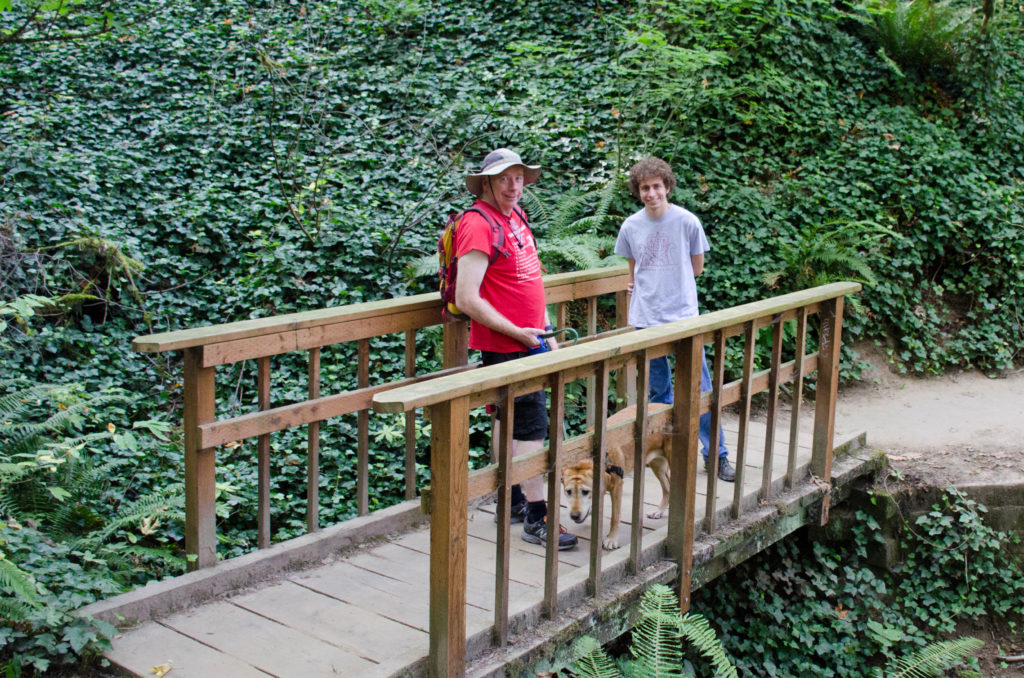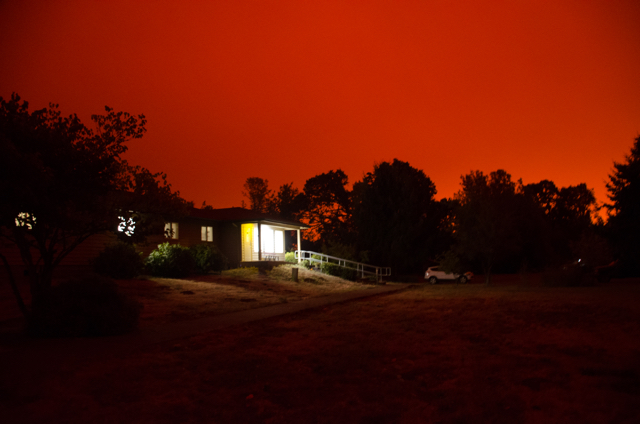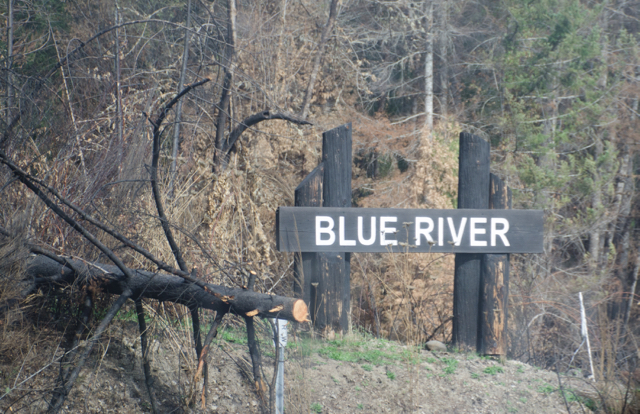Luckiamute & the Willamette Valley
Our time at the Luckiamute State Natural Area is coming to an end. It’s been a very different, but enjoyable, state park. The natural area we’ve been helping is a string of small land parcels running along the Willamette and Luckiamute rivers, deep in the heart of Oregon farm and winery country, Tasks have covered everything from bramble annihilation (great new tool discovered) to wooden bench restoration; attempting to rescue abandoned domestic rabbits to strimming.
The background work done at these less headline parks is impressive. Since the rangers can focus on conservation and less on guest services, the rejuvenation of the landscape is moving fast. The park has just planted its 1 millionth tree, as part of this reclamation work. It’s a White Oak, named, Gary, apparently, because that type of oak is also known as Gary Oak in these parts. Who knew?
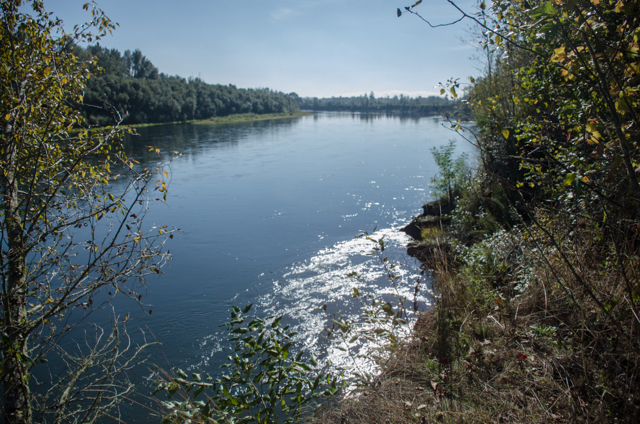
The time here though will always be marked by the wild fires that whipped around us. during September. Honestly one of my most surreal experiences: ash laden air, the sky a blood-red black at 10 in the morning.
Last week we visited friends affected. The random haphazard way the fire has taken peoples’ homes is difficult to see. I imagine the psychological impact of that is hard to bare. You’re home’s gone, but your neighbour’s, a matter of feet away, are all but unscathed. The chimneys left behind haunt the landscape, a reminder of what was.
The village of Blue RIver is gone. Just the school and a very few scattered houses remain. As you drive up, the village sign sits by the road, charred and blackened. Then there’s just grey dust beyond, little pockets of lawn recovering and the river flowing.
People are staring to rebuild, and Oregonian’s are hardy by nature. But I think the landscape will recover quicker than the residents.
Industrial Heritage
We are volunteering with Oregon State Parks at their Bates Park in the state’s eastern mountains. The area is not on the ‘main drag’ as far as tourists are concerned … not the beautiful coast or the verdant Cascade Mountains, but the area is rich in pioneering and industrial heritage.
A stop on the Oregon trail, the area was quickly utilized for cattle ranching. The wide river valleys providing lush pasture, with hillside alpine meadows a cooler retreat during the hot summers. Railway towns then grew as service centers.
Lumber was felled and shipped out. Bates’ growth and then disappearance a direct corollary to the fortunes of timber.
Along the way, gold was found. Short lived gold rush booms followed, scattered across the John Day and Powder River tributaries. So rapid was the influx of prospectors that Canyon City, now a sleepy village south of us, became Oregon’s largest city for a short time in the 1860’s.
Once the seams were worked out, attention turned to the river flood plains. Tiny gold fragments carried downstream; to then be chased by meticulous prospectors working their pans for the elusive specs.
Portland investors realized that the alluvial deposits must hide further treasures, and The Dredge arrived in Sumptre. A means to effectively pan for gold on an industrial scale, the platform created its own slowly advancing pond with the dredge scooping and sorting all before it, from top soil to bed rock, looking for the gilded dust.
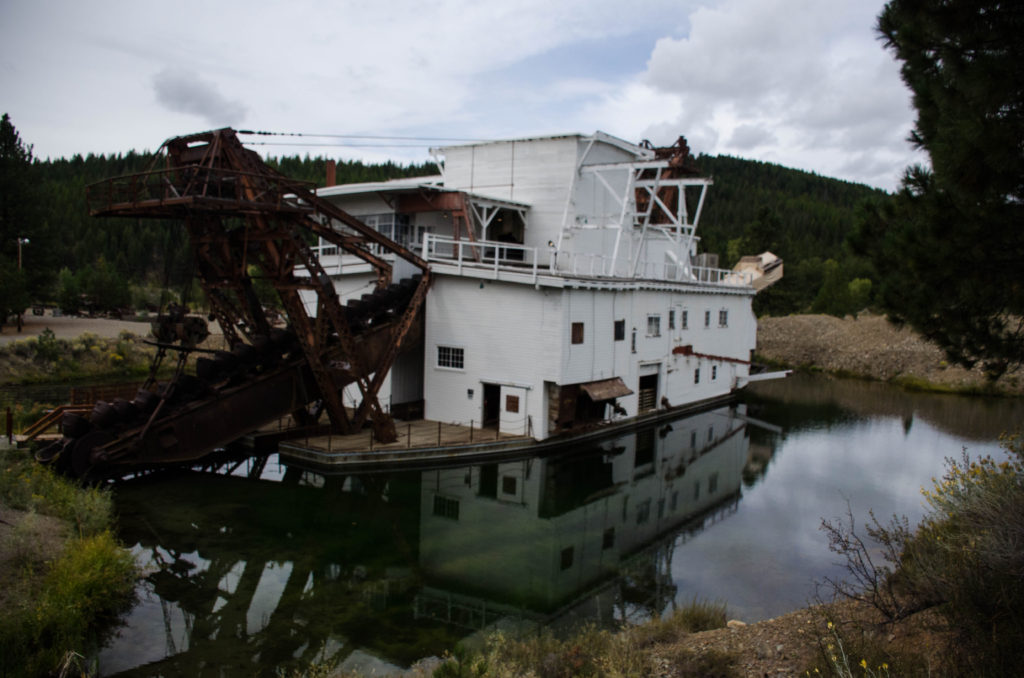
The locals gladly rented their land to the dredge company, with the promise that the land would be returned to the owners after the sweeping of the dredge. Of course though the dredge churns all in its path, and what was returned to the villagers was not the rich farming land they’d rented out, but a landscape slewed with a conglomerate mix of trailings, heaped 12 feet high. These berms still stand, snaking neatly across the valley floor. The last dredge scoured its final furrow in 1954. Now restored, the floating platform sits centre stage in a sister state park, a little north of us in Sumptre.
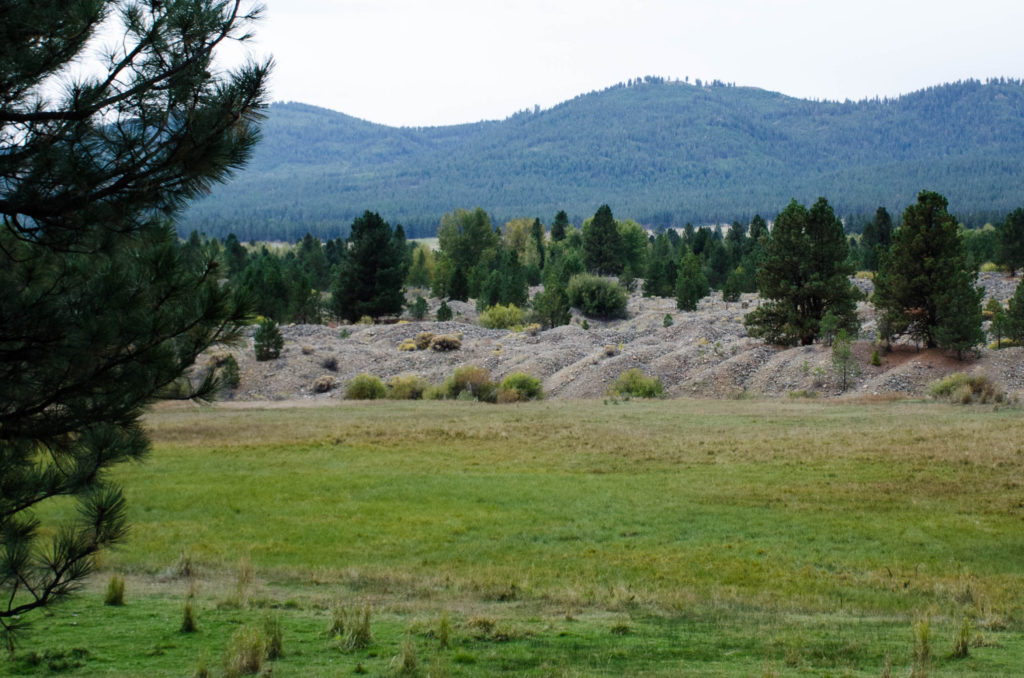
Grant and Baker Counties are working hard, with state level help, to preserve these industrial footprints. There is a tendency to look out of our caravan (that’s a trailer to the Americans reading) window at the deer grazing or the otters playing in our old lumber mill pond and miss the marks our toil has left on the landscape.
Portland
Portland, Oregon has been a change of pace for us. An opportunity to spend a little time in a location, rather than at a destination. We have sat and done next to nothing in vineyards, explored Powells (the iconic Portland bookstore) and visited museums and rose gardens. After the grandeur of the scenery of recent states, it has been a welcome rest stop.
